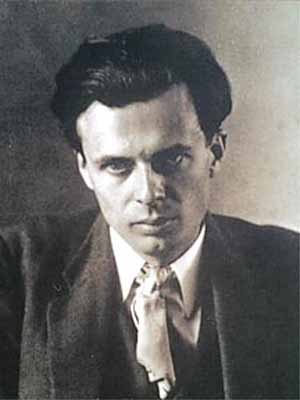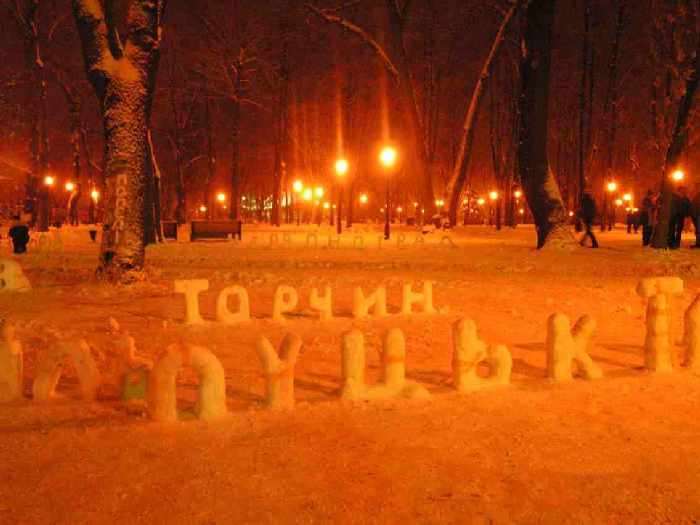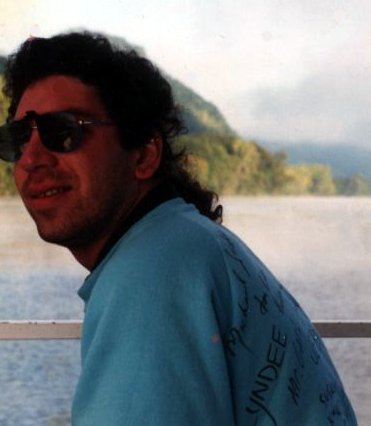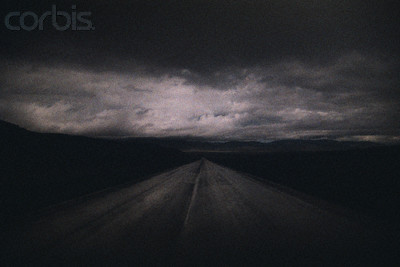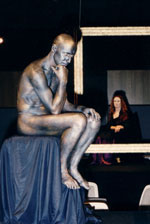
It’s four o’clock in the morning and I have just woken up next to a strange woman. That is probably not the best way to start a story, so let’s back up a little bit and start over.
I first met Nell a few days ago. I have just moved house, to a large and rambling apartment building near the railroad tracks in that part of town, they call it the Fifth Ward, where the Bohemian artists and the down and out of society mix freely. It’s a part of town whose real pulse is best taken at night, late at night, but seemingly quiet at, say, 10:30 in the morning. I have just lost my job at the paper, and picked up a few classes to teach at university. The apartment is cheap, and I will be able to get by on that salary and this rent.
The building is a four story walk-up, my unit is one of four on the second floor. Most of the buildings in this neighborhood are industrial, but this one was actually built as apartments. “The Hawthorne†is the name over the main entrance, but I, as most of the tenants, use the side door, off the litter strewn parking lot.
David calls shortly before my move. He’ll be in town for Father’s Day and asks if he can stay with me. You can stay in my apartment, I tell him, my new apartment, but it will be empty – I’m in the process of moving right now. That works for him, and he even helps me move a few of my things over. There isn’t much, really. I’ve been shedding possessions of late, part of an abortive plan to move overseas. I still may move, but that was the impetus to get rid of much of the accumulated material cruft with which one surrounds oneself over time. I still kept many books, an old typewriter of my mother’s, and my laptop. An old leather easy chair, in which I like to write, and a wonky footstool are what we are moving the night I first meet Nell.
The first thing that strikes me about this diminutive figure is her large head. Not large in and of itself, but large for her small, slender body. She has close-cropped black hair, almost spiky, with little elfin locks curling down before her ears. Her close-set dark eyes often peer out from under her brow, her face tilted down towards her feet, as though heavy. That brow carries thin, but not plucked, eyebrows, with a few hairs on the bridge of her upturned nose, revealing the eastern European heritage which most surely lay in her past. She has a slight frame, and her shoulders hunch forward when she thinks no one is looking, but she has a proud carriage otherwise. About 50 years old, maybe a bit less, but I can’t really be sure. Her face has a way of lighting up when she thinks she has impressed you, but can turn dark and cloudy with her mood. A black sweatshirt, with arms so long that they shroud her hands like a monk’s cowl, overlap the waist of her maroon jeans, themselves belted with an old tie.
She shuffles towards us in her slippers, looking through some mail, and almost absentmindedly holds the door open for us. She looks up, though, as we carry the chair and footstool through the door. Her eyes have an almost mischievous cast to them as she introduces herself in a voice weighted with years of smoking but still lyrical, “I’m Nell – 4A. What a gloriously disheveled chair you have there. I’m sure he has an interesting story in him.†A few, I assure her. “I’d shake your hand and properly introduce myself, but this glorious chair would tumble. I’m Nic, just moving into 2C.†She smiles and I get the first whiff of her subtly beguiling nature as she tilts her head down in that way and peers up at me from under her brow. She holds the door, and we, David and I, finish getting the chair through. As the door closes behind me David says he thinks she is hitting on me. I don’t know if that’s so, but there is something, that’s for sure.
Moving boxes with David the next day we run into Nell again. She offers to serve us tea in her rooms. “I’ve got the fourth floor to myself, I do my work here as well,†she says, as we climb the creaky back stairs behind her. She has an odd way of climbing stairs: she takes a step with one foot then brings the other up to meet it, then takes the next step with that other foot. In this way, right foot up, left foot follows, then left foot up, right foot following. This makes for an odd rhythm as the three of us ascend those old stairs.
Unlike the other floors, the fourth floor has no hallway or lobby, the stairs just empty out at her back door. She fumbles with a key chain which has a large number of keys on it, a pink feather for a fob and one of those stretchy plastic bands which some women use to hang keys from their arm when they don’t have a purse with them. She could never hang this key chain from her arm though, it would take all of the stretch out of that band.
The door opens into an almost empty room. There is an old green love seat, almost looks as though from an airport with its strongly geometrical style. A matching side chair and a low coffee table complete the grouping. That’s it; three small pieces in a room which many would consider a large living room. It echoes it is so spare. I comment on the sparseness and the echoes. “An empty room inspires an active mind to rest, I find.†she replies. “Sometimes I need that, with what I do.â€
“What do you do?†David asks.
“I’m an artist,†says Nell, and offers him a business card pulled from her pocket, that key chain rattling and jingling the whole time. He looks it over and slips it into his own pocket.
“How many units are on this floor?†I ask. “Just mine.†she replies. “I don’t know why, but the building was built this way, with one large apartment on the top. I love it though, for my studio space.†This last is said as we make our way through another room and into a long hallway. There are many doors along that hallway, some with several locks on them. We are approaching the front of the building and the hallway leads us to her studio space, a long room which must span the entire width of the building and has several tall windows along the western wall which look out over the tops of the mostly lower manufacturing concerns and parking lots around us. The sodium-vapor lights from the lots down below cast an eerie dull-orange glow which comes up through those tall windows and illuminates the ceiling more brightly than the rest of the room.
“Let me show you my latest work,†she says, and she must have flicked a switch somewhere, for the room suddenly has more lights on. It is still dark, but there are pools of light in the otherwise shadowy room. I can make out a couple of figures in the shadows. They are almost in silhouette when, with another switch, more lights. I can now clearly see a pair of statues, one of a man seated on a tall stool, another a man placing a box upon a tall shelf which isn’t there, almost like mime. They are wonderfully lifelike, as I view them from the distance. As I approach one, however, I sense some movement. Then it strikes me, these are living! Surely, they are men, they hold poses, and have been carefully dressed and made up, as for a photo shoot or to sit for an artist, but they are now living statues.
I cannot say for sure how it developed, I am a little foggy on the details, but Nell took on a different demeanor once we crossed the threshold into her apartment. She becomes stronger willed, almost imperious. She doesn’t ask, she tells. She veritably orders us around, and no longer peers out from under her brow, but rather holds her head up and looks down her nose. She is strong, and we comply. Shortly after we enter the studio a young woman enters the room. “Bring tea, Hilda. Three cups.†orders Nell. “Bring the pot, and some honey. That new Earl Grey, that’s what we’ll have, for Mr. Nic and Mr. David.†“Get a move on it, girl.†she snaps. Looking quite frightened, Hilda even curtsies as she leaves the room.
“I was wondering if you would be so kind,†she starts, addressing me. “I’ve needed to rearrange this furniture a bit for the longest time.†We are standing near one end of the long narrow studio space with our tea. David is perusing the bookshelf and trying not to look at the stoic, seated figure near him – that statue on the stool. Hilda hovers, nervously, near the periphery. There is a long, low couch with a gray woven throw over it, and many neutral colored pillows. Next to it are a couple of tables and a large white upholstered ottoman. The corner and fully one third of the ottoman are under one of these tables. “I’d like that ottoman over in front of the couch here,†said Nell. “We moved it when I was working on a piece recently and I just can’t seem to move it back myself.â€
I feel something, as she says those words, which tells me that she would never have even tried to move it herself. She isn’t given to acts of toil, there are other people to do work. She just directs. I take that direction, however, without even a thought of will. I put down my tea cup and move towards the ottoman. It is one of those large square pieces, about four feet across. It’s not too large for me to heft it alone, but it is awkward. As I pick it up I have to slide it out from under one of the tables. I hear a mew, and notice a kitten, as white as the ottoman itself, sitting on the corner which had been under the table. Where a cat would have jumped off of the now moving ottoman, the kitten just hunches down and cries in fear. Hilda sweeps in and grabs it. As she just as swiftly moves away I see that she has dropped a note before my eyes.
“Help, we’re prisoners.†is all it says.
I’m not thinking as I read it, aloud, but once I realize the meaning of those words I look up and see a hard look in Nell’s face. “What is the meaning of this?†exclaims David. I, still with that ottoman in my hands move towards Nell. The hard look in her eyes changes to fear, that fear of a cornered criminal, and she drops her tea upon the sofa and darts out of the room. “You foolish girl,†she hisses as she runs.
I hear a door slam as I drop the ottoman and head after her, David and Hilda hot on my heels. “You won’t catch her,†cries Hilda behind me, “they never do.†Nell is nowhere to be found. Most of the doors are locked, and quite sound. “Well, I don’t know that we care about her,†I say to David. “You’re welcome to come with us if you’re scared,†I tell Hilda. “I’m sure she can’t hurt you.†I confidently stroll towards the door to the back stairs. I hadn’t noticed, as we came in, just how sturdy it was, nor how many locks were on it.
“Nell, unlock this door!†I must have hollered that a hundred times that night as David and I tried to bust our way out of apartment 4A. Hilda didn’t even struggle, she just watched us, a mix of pity and fear, and defeat, upon her face.
As I said, it is four in the morning and I have just woken up next to a strange woman. I do not know when it was that I gave up. I don’t remember laying down with Hilda, but I awoke with her alongside me, her head firmly pressed into my left shoulder. “Where’s Nell?†I ask as I wipe the sleep from my eye with my right hand. I then look down at Hilda but she isn’t there. It was a nightmare, I realize, just a nightmare.
I push back the covers and swung my legs over the side of the bed, both hands reaching back to rub my sore lower back.
You’d be surprised just how stiff you can get from holding a pose all day long.


